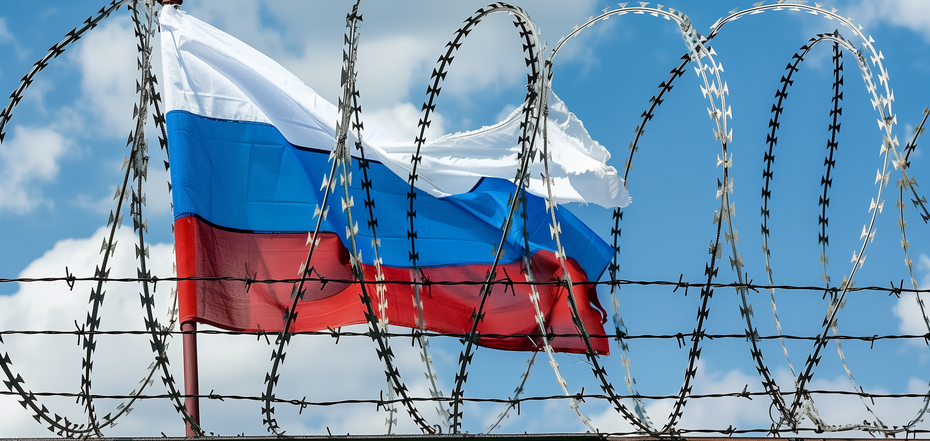News
Russian top oligarchs remain under sanctions and billions of euros are under lock and key: EU court rules
The EU Court of Justice refused to lift European sanctions against Russian oligarchs Gennady Timchenko, Mikhail Fridman, Pyotr Aven, and German Khan, confirming their financial support for the Russian government. Also, the National Settlement Depository of Russia (NSD) remained under sanctions, which blocked the assets of Russian investors worth 70 billion euros.
This was reported by Radio Liberty with reference to the decision of the EU Court of Justice, which was announced on September 11. As stated in the decision, these businessmen provide significant material or financial support to the Russian government, thereby contributing to its ability to continue the war against Ukraine.
For example, Gennady Timchenko, often referred to as Putin's "chief treasurer," argued in court that his close relationship with the Russian president did not indicate support for the war. However, EU Council lawyers pointed to his ties to "Rossiya" Bank, which plays a key role in financing government projects and supporting the Russian economy. Such ties, the Council of the EU emphasized, have a direct impact on the government's ability to continue its aggressive actions in Ukraine.
In addition to the oligarchs, the court also rejected an attempt by Russia's National Settlement Depository to lift European sanctions. NSD is the main custodian of Russian securities and a key element in the functioning of the Russian financial market. The court's decision states that NSD's activities are of significant value to the Russian government and the Central Bank, providing them with financial resources to support operations that destabilize the situation in Ukraine.
The sanctions were imposed in the summer of 2022 and were a disaster for Russian investors, whose investments in foreign stocks and bonds were frozen. NSD tried to prove that the sanctions were unlawful and violated the rights of asset holders, but the court rejected the claim. The court argued that the restrictive measures did not directly affect NSD's clients and the depository has no right to challenge decisions on investor ownership.
The EU justified the sanctions by saying that NSD is the largest depository in Russia with access to the international financial system. The sanctions also affected the Moscow Exchange and other companies in its group.
This decision is of strategic importance, as financial institutions such as NSD ensure not only the functioning of the market but also the stability of the Russian economy, which is important for the government under sanctions pressure. Blocking NSD's access to European markets and financial systems makes it difficult for the Russian economy to attract foreign investment and conduct financial transactions with European partners.
Attempts to challenge the sanctions in court have been unsuccessful for most influential Russian businessmen. The oligarchs, including Friedman, Aven, and Khan, failed to convince the European authorities that they were not involved in supporting Russia's war in Ukraine. They tried to prove that their activities had nothing to do with the actions of the Russian government or the war. However, the EU Council emphasized that financial support from these oligarchs, even indirectly, makes them complicit in the aggression.
At the same time, the sanctions require these oligarchs to declare their assets and cooperate with the competent EU authorities, which further limits their ability to do business in the EU. Despite the overall success of the EU's sanctions policy, some Russians still manage to challenge the restrictions through the courts.
On September 11, the EU Court of Justice removed two Russians from the sanctions lists – Nikita Mazepin (son of billionaire Dmitry Mazepin) and Violeta Prigozhina, mother of Yevgeny Prigozhin, founder of the Wagner PMC. Mazepin managed to prove in court that his economic ties with his father, on which the sanctions were based, were not sufficiently substantiated. Violeta Prigozhina was also able to prove that she had not been a co-owner of her son's business since 2017, which allowed her to avoid sanctions.
Similar cases have already occurred. For example, sanctions were lifted against Yandex founder Arkady Volozh and businessman Sergey Mndoyants. However, such exceptions remain rare and mostly relate to cases where the sanctions have already expired or where the court has not been provided with sufficient evidence of the individuals' links to the Russian government.
The Council of the EU reviews and extends sanctions every six months, which allows the sanctions lists to be kept up-to-date and adapted to new circumstances. The sanctions apply not only to politicians and the military but also to companies and individuals who help the Russian state to function during the war.
Only verified information is available on the OBOZ.UA Telegram channel and Viber. Do not fall for fakes!



























